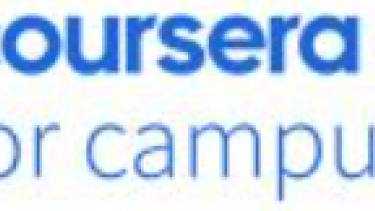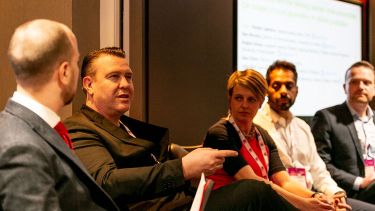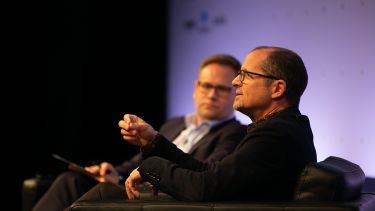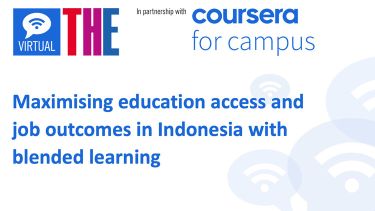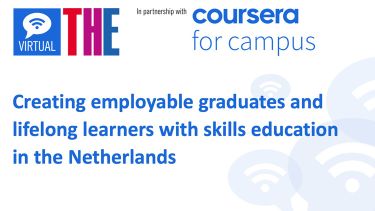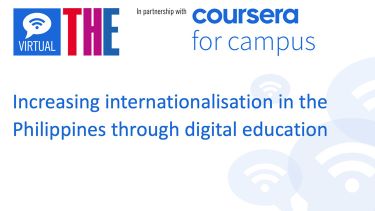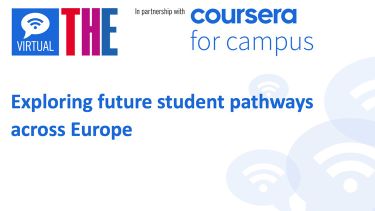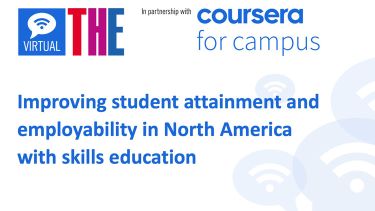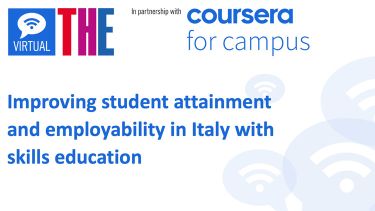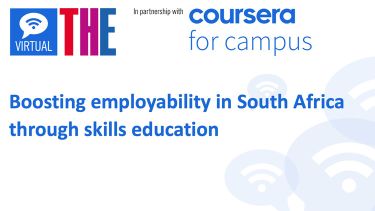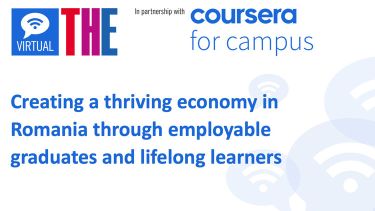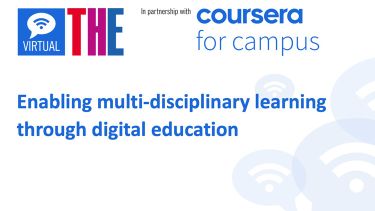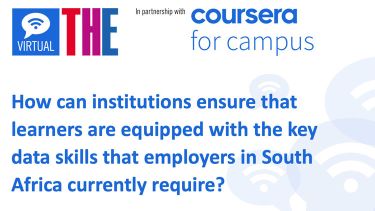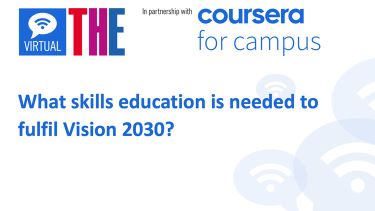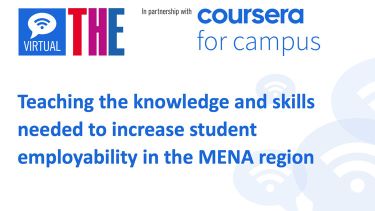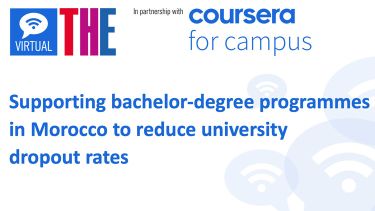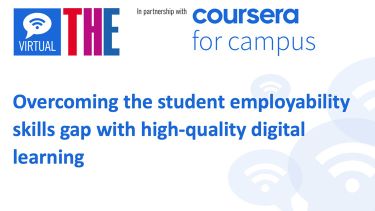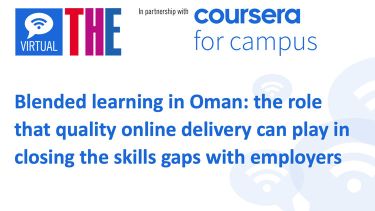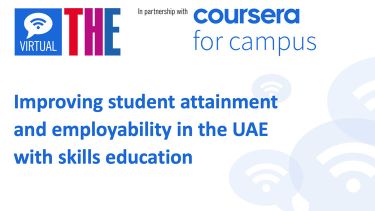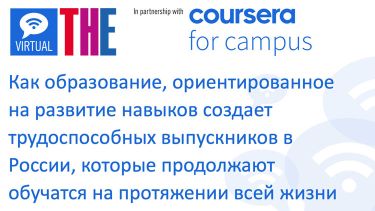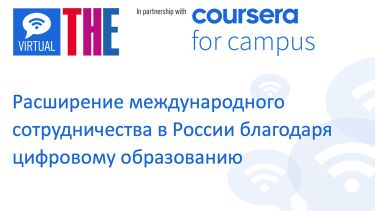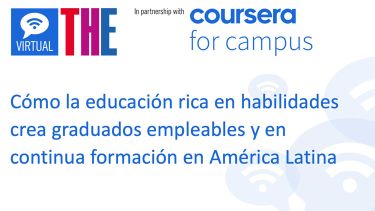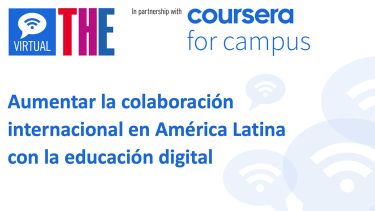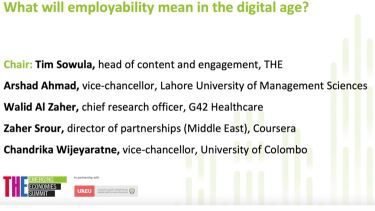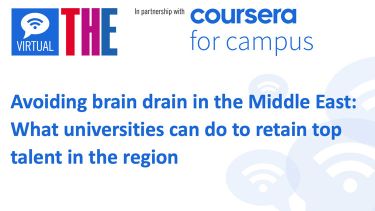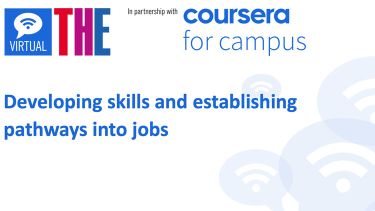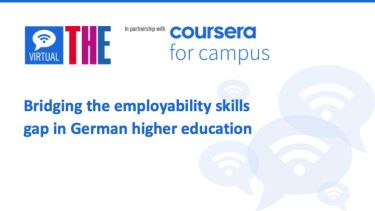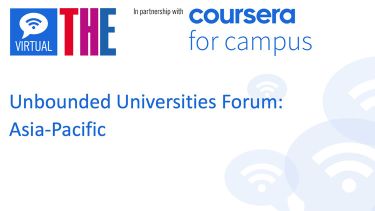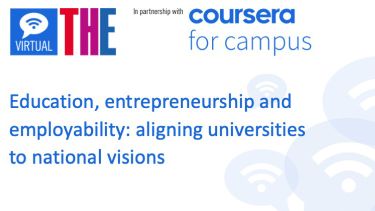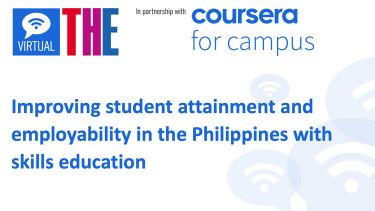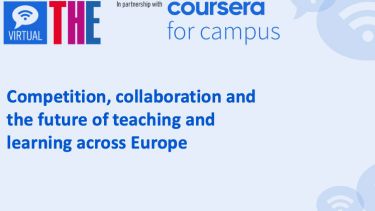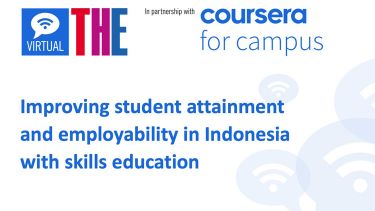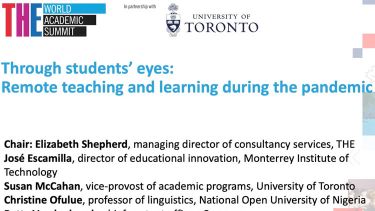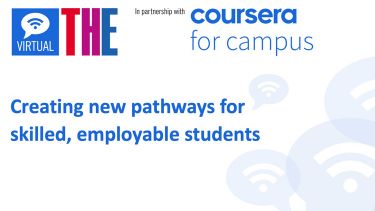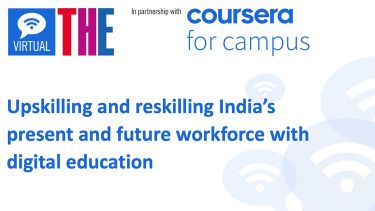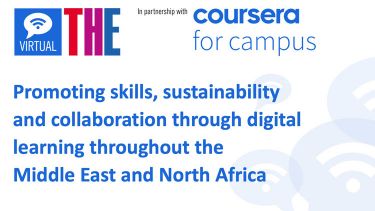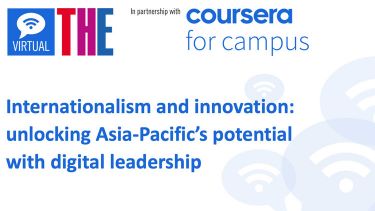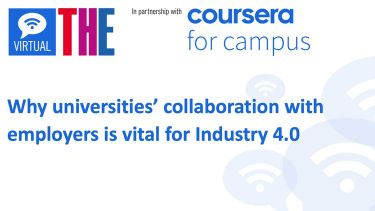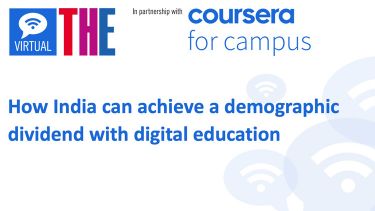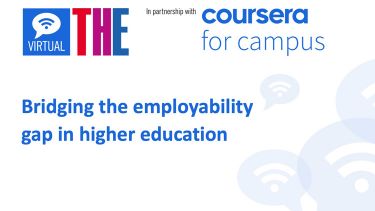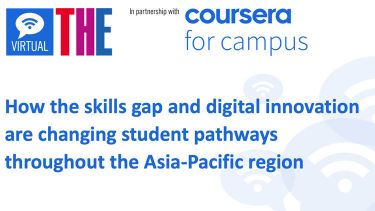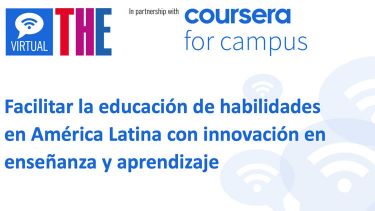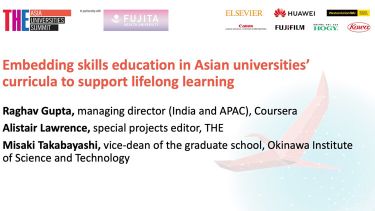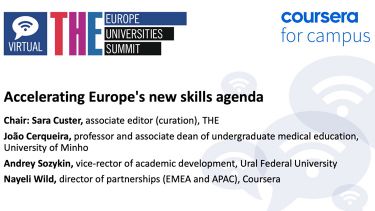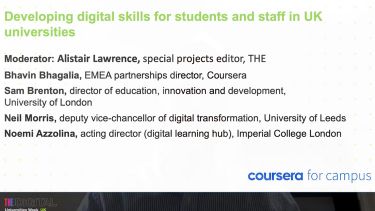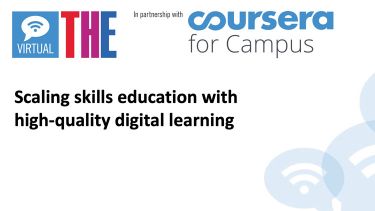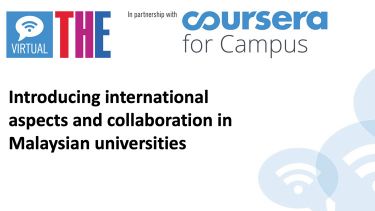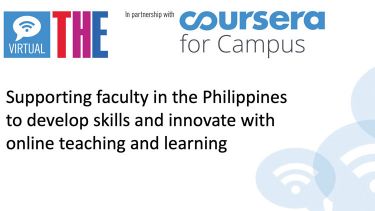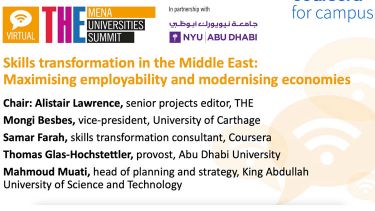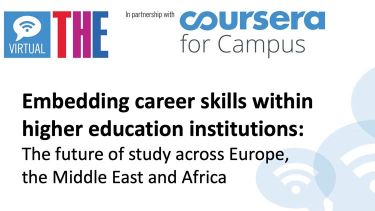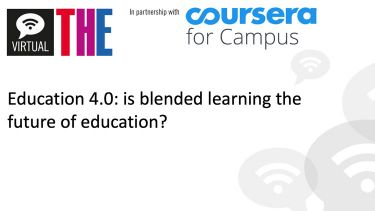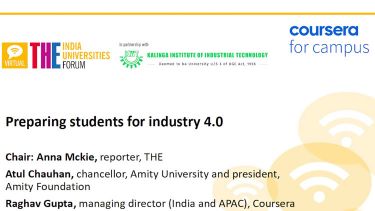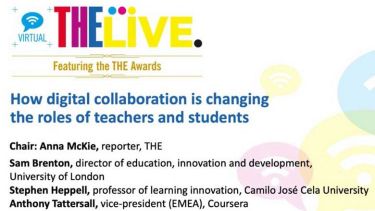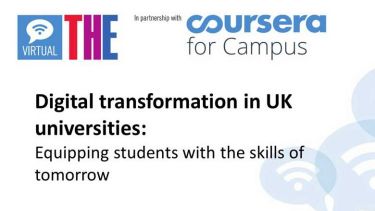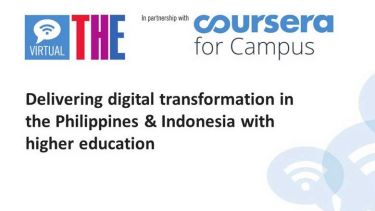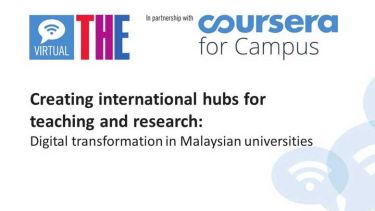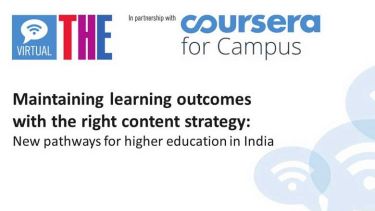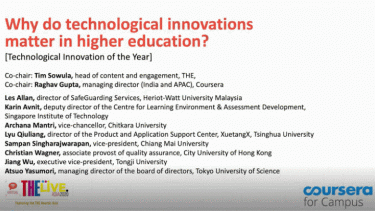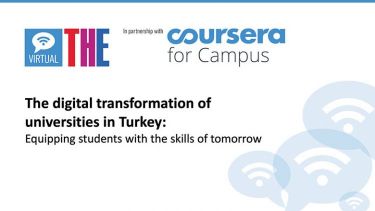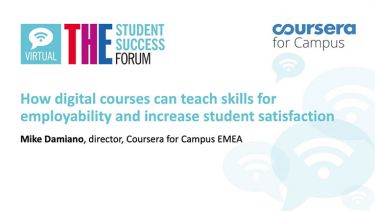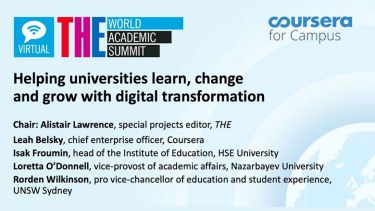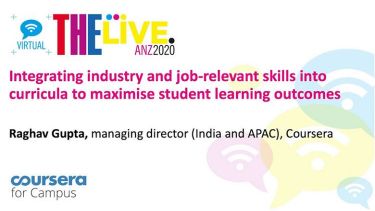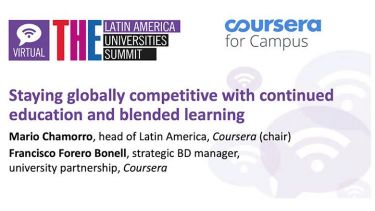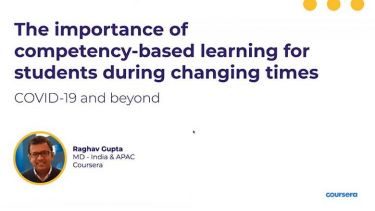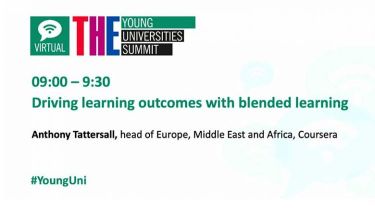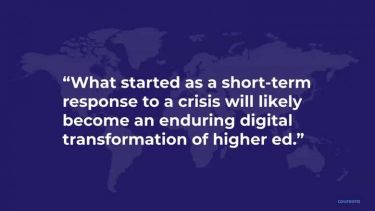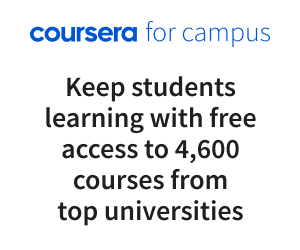Although the Covid-19 pandemic has severely impacted universities’ ability to offer face-to-face teaching, opportunities have arisen from the move to blended learning
Webinar held in September 2021.
While few industries have escaped the impact of the Covid-19 pandemic, some have been forced to adapt their services in a particularly pronounced way. At a virtual round table hosted by Times Higher Education in partnership with Coursera for Campus, experts from some of Kazakhstan’s leading universities came together to discuss the challenges faced when offering blended learning opportunities.
Eklavya Bhave, regional director of APAC and Japan at Coursera, gave an overview of how Coursera is working with universities to provide vital professional skills training. “Given that there’s so much automation and digitalisation happening…prioritising student employability is becoming very important in all higher education [institutions],” he said.
This focus on digital employability is pertinent: the World Economic Forum’s Future of Jobs Report 2020 found that the top five jobs in increasing demand are all highly digitalised, while a report by Microsoft found that by 2025, 149 million new digital jobs will be created.
Coursera can help prepare students for this change. “The students are focusing on building digital skills,” Bhave said. “They are taking the courses and the professional certificates that will help them acquire those digital skills.”
Although offering these digital skills as part of long-standing curricula can be a challenge, Loretta O’Donnell, vice-provost for academic affairs at Nazarbayev University, said that the pandemic had hugely accelerated the university’s progress in creating blended learning opportunities.
“We challenged faculty to use this incredible time to think creatively about assessments,” she said. “We moved from fairly traditional thoughts…to using much more project-based, creative-based assessments.”
O’Donnell added: “For all the tragedy that the pandemic has created, there are definitely some opportunities. I think those that have been able to adapt to change have found it to be really useful.”
Aigerim Kaumenova, vice-rector for global partnerships at Almaty Management University, agreed. “We think that the pandemic has opened up new horizons and new opportunities for expanding partnerships…making [them] more meaningful, in a way,” she said.
Asel Jumasseitova, vice-rector for academic affairs at Kazakh British Technical University, noted how the pandemic offered some institutions – and Kazakhstan as a whole – the opportunity to develop their digital offerings at a faster rate. “For Kazakhstani universities, this pandemic was a push to digital formats of studies that we didn’t have before. That actually improved the digital transformation of Kazakhstani higher education,” Jumasseitova said.
Nonetheless, continuing to offer exemplary education through a period of global turmoil has been incredibly challenging. Diana Amirbekova, managing director of internationalisation and strategic development at Kazakh British Technical University, said that during the past academic year universities had suffered with regards to student engagement and their ability to adapt to online education.
“It’s not just about the knowledge,” Amirbekova said, “but more about engagement. How do you work with your students; how do you engage with a class even though everyone is sitting online through their laptops?” It is an issue that universities globally have been working to overcome.
The panel:
- Diana Amirbekova, managing director of internationalisation and strategic development, Kazakh British Technical University
- Danara Berishbayeva, deputy dean, Almaty Management University
- Eklavya Bhave, regional director of APAC and Japan, Coursera
- Davronzhon Gaipov, rector, Suleyman Demirel University
- Asel Jumasseitova, vice-rector for academic affairs, Kazakh British Technical University
- Aigerim Kaumenova, vice-rector for global partnerships, Almaty Management University
- Assylbek Kozhakhmetov, president, Almaty Management University
- Alistair Lawrence, special projects editor, Times Higher Education (chair)
- Assel Nurgazina, director of international office, Almaty Management University
- Loretta O’Donnell, vice-provost for academic affairs, Nazarbayev University
Watch the round table on demand above or on the THE Connect YouTube channel.
Find out more about Coursera for Campus.


